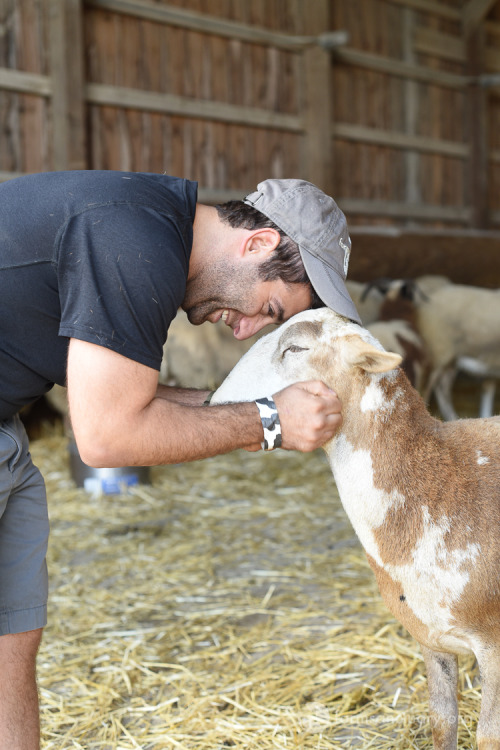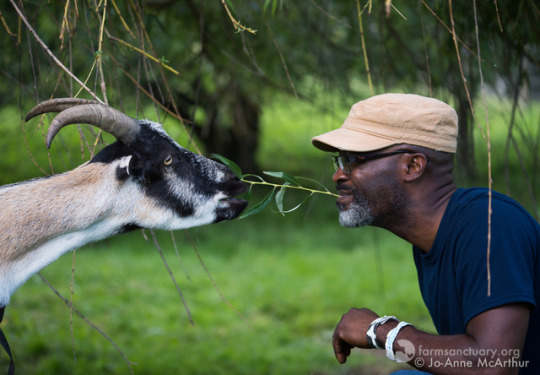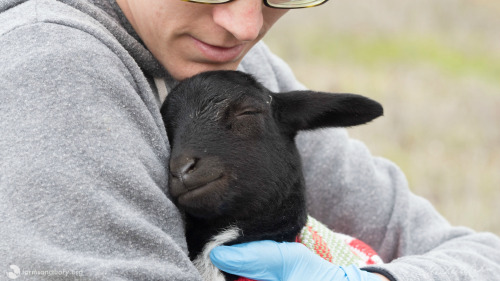
This isn’t completely straightforward, because different people have different conceptions of what truly constitutes a “vegan” product. But as a handy example, The Vegan Society defines veganism as:
Veganism is a way of living which seeks to exclude, as far as is possible and practicable, all forms of exploitation of, and cruelty to, animals for food, clothing or any other purpose.
By breaking down that definition, we can see how different items might be deemed acceptable or unacceptable to vegans.
[Heads-up: While people go vegan for lots of different reasons, this answer will mainly assume a stance of veganism for animal kindness reasons, since that position has the broadest bearing on what is considered vegan. For example: someone who eats vegan food strictly for health reasons might still wear leather shoes or use animal-tested cosmetics, while someone who’s vegan for animal kindness reasons would not.]
Food
Vegan food items will not contain actual animal parts (meat, bone marrow, etc.), or the by-products of animal bodies (milk, eggs, etc.), or utilize animal parts in their production (like isinglass — made from fish bladders — which is used during the brewing process for certain beers, but isn’t present in the final product).
These things are omitted because they’re understood to be inherently exploitative and cruel. To learn more about why vegans believe this, check out the What's the matter with [...]? Questions.

Clothing
Similarly to food, vegan clothing items will not contain actual animal parts (leather, skin, fur, etc.), or the by-products of animal bodies (wool, silk, etc.).
To learn why vegans have decided not to support these products, check out the What's the matter with [...]? Questions.
“Any other purpose”
When I decided to become vegan, it wasn’t something I did 100% overnight — it was more of a cascading, evolving process. First I eliminated animals from my food. Then I researched more about clothing (like, how could wool be bad?) and, based upon what I learned, decided to eliminate animal products there, too.
All done, right? Nope! It turns out there are a lot of ways in which we use living animals as a means-to-an-end that never fully occurred to me until I started trying to opt out of these practices.
Animal testing

This one is a biggie. In the US, the vast majority of the shampoos, body washes, cosmetics, and home cleaning products that we use have been tested on animals (you can check whether your products are animal tested here). Not only is such testing not legally required, is scientifically unnecessary, and is just really freaking cruel, but it’s also carried out on particularly trusting and docile animals — specifically because they are trusting and docile — such as rabbits and beagles. Most people I know would never want to hurt a rabbit or a beagle. But unfortunately, we have been hurting them by purchasing animal tested products.
But if, like me, you optimistically suppose, “Well, how bad could it really be to put some lip gloss on a bunny?”, then understand that this is not the type of testing that’s being conducted. For instance, major brand names like Revlon routinely drip chemicals into rabbits’ eyes until they go blind, in the name of producing everyday products like mascara or dish soap. And that’s one of the less painful and intrusive tests carried out on these living creatures. I’m intentionally not linking to any graphic photos or extremely detailed descriptions here because, frankly, it’s horrible and I don’t want to have to look at it again, now that I’ve already opted out of using these products. But please consider researching on your own if you don’t find the information here sufficiently compelling.
The good news: it turns out that a groundswell of people are not interested in voluntarily torturing bunnies and beagles, for a practice whose scientific value is dubious at best, and companies and countries are taking notice. The EU, India, and Israel have already banned this testing. In the US, Leaping Bunny certifies companies whose entire supply chain — from ingredient-stage to final product — involves no animal testing. (It isn’t difficult to find affordable LB-certified products to cover everything a family needs, from cleaning your person, to cleaning your clothes, to cleaning your house.) Some individual companies like Lush even take it the extra mile, by actively fighting against the practice of animal testing. And organizations like the Beagle Freedom Project are rescuing animals who have been tested on.
Discovering that I had been inadvertently contributing to so much pain and suffering for so many years was a really difficult and painful truth to confront. But I’d rather be aware of the implications of my decisions, and be able to make an informed choice, than to remain in the dark and be ignorant of the harm I’m causing. Now that I know that I can choose a laundry detergent that was never painfully tested on another being, it’s a relief. That’s not something I ever wanted to be a part of, and now I know that I don’t have to be.
Animals for human entertainment
Most vegans do not support institutions that keep animals for human entertainment and/or breed wild animals for the purposes of holding them in captivity. To learn why, check out What's the matter with zoos?
“As far as is possible and practicable”

There’s an important reason why this concession is included in the definition. If vegans defined veganism as completely opting out of “all forms of exploitation of, and cruelty to, animals,” then — sadly — no one on earth could be vegan. Unfortunately it's pretty much impossible to live in a manner that has zero negative impact on animals. To learn more about how vegans deal with this tricky issue, check out But nobody can TRULY be 100% vegan, right?